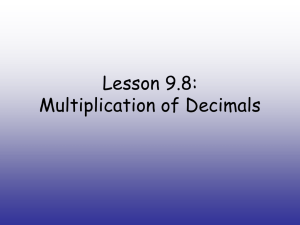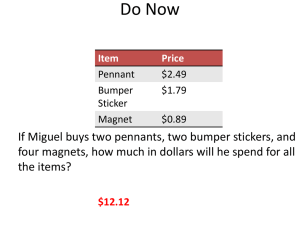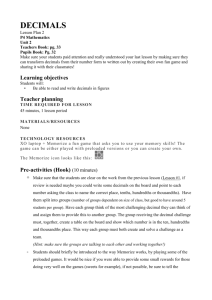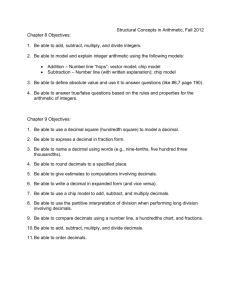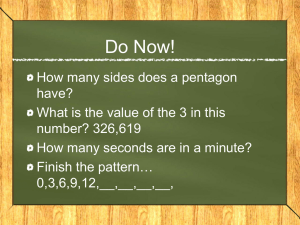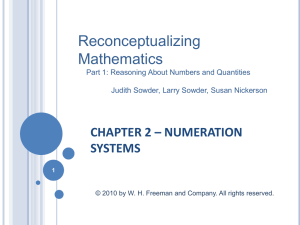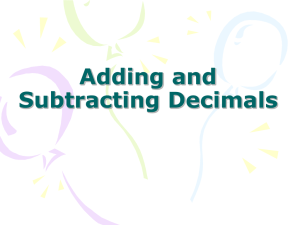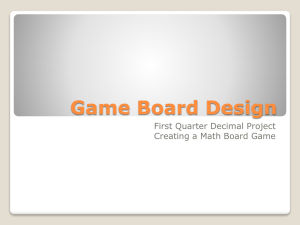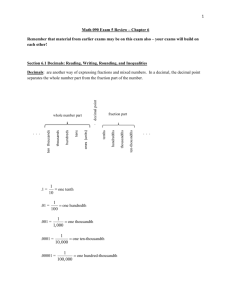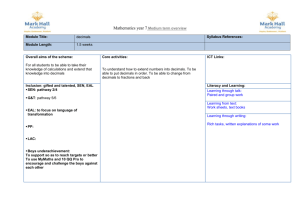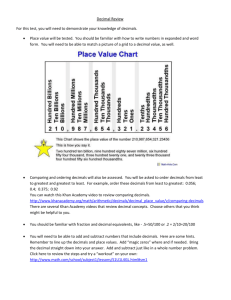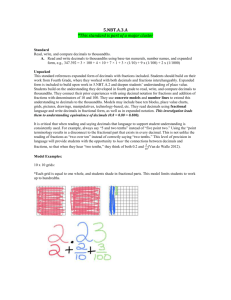7CurricDecimals
advertisement
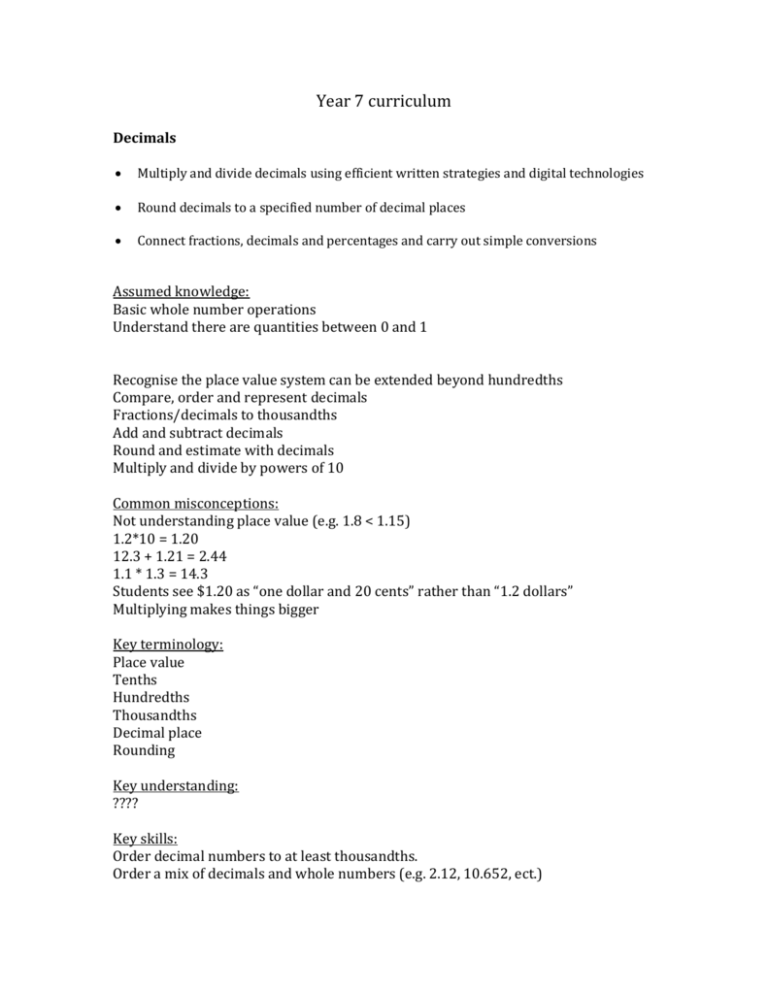
Year 7 curriculum Decimals Multiply and divide decimals using efficient written strategies and digital technologies Round decimals to a specified number of decimal places Connect fractions, decimals and percentages and carry out simple conversions Assumed knowledge: Basic whole number operations Understand there are quantities between 0 and 1 Recognise the place value system can be extended beyond hundredths Compare, order and represent decimals Fractions/decimals to thousandths Add and subtract decimals Round and estimate with decimals Multiply and divide by powers of 10 Common misconceptions: Not understanding place value (e.g. 1.8 < 1.15) 1.2*10 = 1.20 12.3 + 1.21 = 2.44 1.1 * 1.3 = 14.3 Students see $1.20 as “one dollar and 20 cents” rather than “1.2 dollars” Multiplying makes things bigger Key terminology: Place value Tenths Hundredths Thousandths Decimal place Rounding Key understanding: ???? Key skills: Order decimal numbers to at least thousandths. Order a mix of decimals and whole numbers (e.g. 2.12, 10.652, ect.) Add and subtract decimal numbers without technology to at least thousandths with a mix of decimal lengths (e.g. 1.23+4.1, 18.2 + 3.23) Short multiplication and division without a calculator to at least thousandths. Multiply and divide decimals by factors of 10 using efficient strategies (not long division/multiplication) Solve decimal operations in real word contexts (word problems) avoiding dollars and cents. Recognise that multiplying by a number smaller than 1 will lead to a smaller result that the initial value. [e.g. I multiply 6 by a number between 0.5 and 0. A possible answer could be: A) 15, B) 8, C) 6 D) 4 E) 2]
